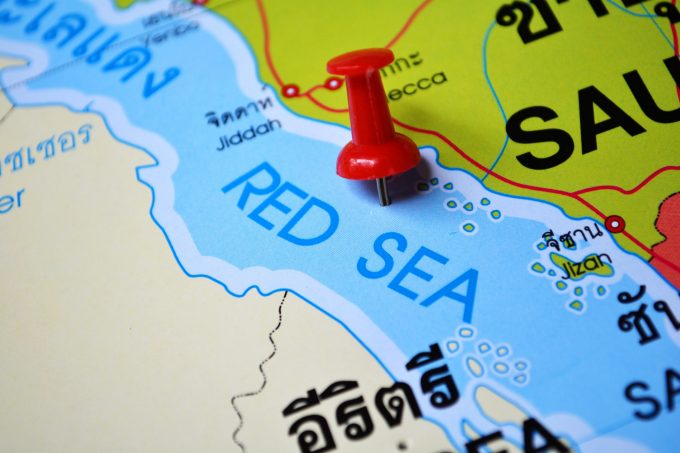Threat of rising oil price adds to frustration for crisis-hit supply chain chiefs
New warnings from the World Bank of surging oil prices, adding to the continuing instability ...

Despite vowing to re-route vessels around the Cape of Good Hope, CMA CGM yesterday sent an ultra-large containership through the Red Sea and Bab al-Mandeb Strait.
The French carrier’s Jules Verne was escorted by the French navy and reported no attacks.
CMA CGM had told its customers that from 1 February, “all services initially routed via the Red Sea passage will now follow the Cape of Good Hope routing”.
It added: “The safety of our seafarers remains our priority at all times.”
But CMA CGM has not said why it decided not to re-route the Jules Verne, or whether it will send other vessels through the Houthi-threatened seaway.
Meanwhile, on Monday, the European Union (EU) announced the launch of a naval operation in the Red Sea, named Eunavfor Aspides, to guard international shipping from Houthi rebel attacks.
“Within its defensive mandate, the operation will provide maritime situational awareness, accompany vessels and protect them against possible multi-domain attacks at sea,” said the EU.
The operation will be active in the Bab al-Mandab Strait and Strait of Hormuz, as well as international waters in the Red Sea, Gulf of Aden, Arabian Sea, Gulf of Oman and the Gulf.
In yesterday’s Flexport freight market update, senior manager of ocean freight for Benelux Guillaume Caill warned that, with added naval pressure, the geopolitical tension in the Red Sea was escalating and thus could last for months.
And, according to Sea-Intelligence, while supply chain stakeholders had quickly adapted to new routes, schedule reliability between the Far East and Europe had fallen below 50%.
“Schedule reliability has become a concern and is here to stay for at least a few months,” added Mr Caill.
Hapag-Lloyd yesterday announced a new feeder service next month that will connect the Red Sea with Turkey.
Comment on this article